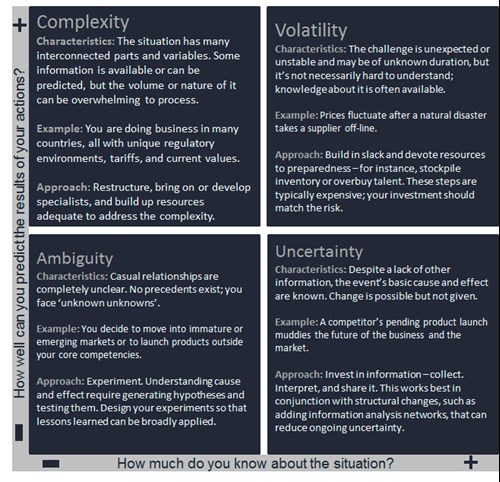

Uncertainty is the only certainty there is, and knowing how to live with insecurity is the only security. Prophetic words from mathematician John Allen Paulos that resonate as we emerge from a global pandemic and in the changing and uncertain world of corporate regulation and legislation.
Uncertainty of itself is not the issue. The issue arises when decisions have to be made, choosing a course of action based on incomplete knowledge. For auditors who gather evidence to form an objective opinion, uncertainty is the antithesis.
This guidance will briefly explore the complex regulatory landscape that chief audit executives (CAEs) have to navigate and consider how the complexity and uncertainty of such change can be managed. It is sector-generic and by looking across rather than into the detail, there may even be a nugget of new insight for seasoned CAEs from highly regulated industries.
Regulatory landscape
Uncertainty is one quarter of the VUCA acronym: Volatility, Uncertainty, Complexity and Ambiguity. The buzz phrase within risk management circles and relevant for compliance today and the challenges that face CAEs.

Source: Harvard Business Review January–February 2014 Issue
Whether it is new accounting standards, changes to LIBOR, governance reform, reporting modern slavery or Brexit, CAEs cannot avoid regulatory and legislative change. The growing awareness of the need for good governance of organisations, society and the planet mean that the trend is unlikely to abate for increased compliance with mechanisms that direct and control the actions of others.
Ten years ago, many CAEs would have been content to carry out a compliance audit having given the organisation sufficient time to embed any new requirements. Today, CAEs are proactive and using insightful leadership skills to drive the compliance assurance agenda regardless of VUCA:
- Divide up scenarios/challenges into manageable tasks
- Build trust in the expertise of others,…
"People lose their way, when they lose their why"
- Michael Hyatt, Author